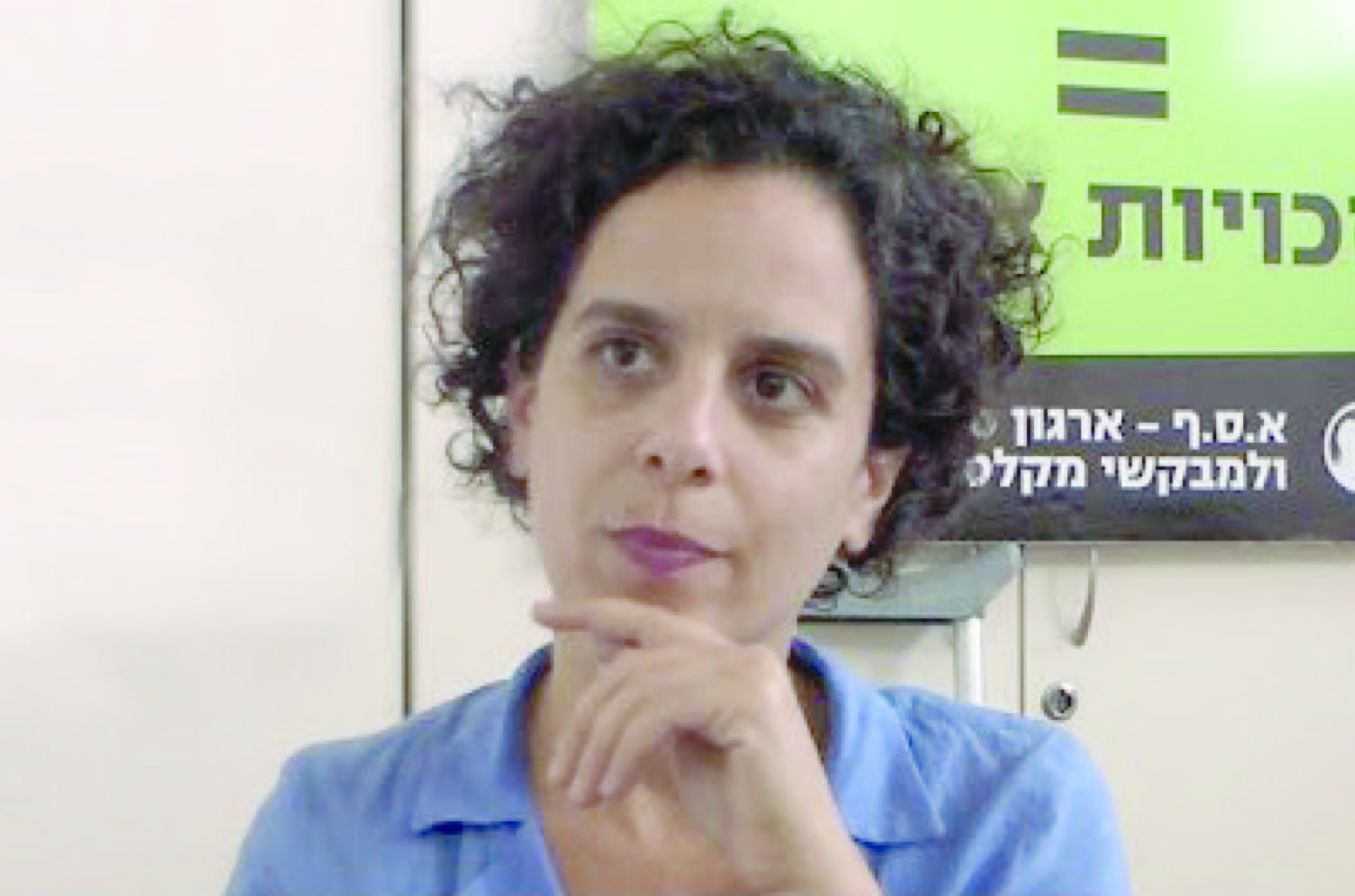
As far back as she CAN REMEMBER, Orit Marom has been an activist.
In 1990, when she was 14, she and a friend pitched a tent in front of then-Prime Minister Yitzhak Shamir’s official residence in Jerusalem to protest budget cuts for pensioners.
The 42-year-old activist has been working for over a decade at the aid organization ASSAF, fighting for the rights of Israel’s refugee community. “The people calling for the deportation of refugees do so out of racism,” Marom said.
Close to 40,000 Africans from Eritrea and Sudan reside within Israel’s borders. Following intense pressure, a plan to permanently settle 16,000 of them, while sending the rest to other Western nations, was scrapped in April. The resistance — mostly from the right — was that Israel doesn’t have the resources to handle so many asylum seekers.
Marom pooh-poohs that argument, along with another championed by the right — that absorbing tens of thousands of Africans will put the Jewish nature of the state at risk.
“In my eyes, it’s the exact opposite,” she said. “Not protecting the refugees means harming the Jewish character” of this country.
Marom said she has no “special desire” to work with refugees per se. “I believe in human rights and I’m concerned about our society.”
Yet for members of the Reath family, from the region that would eventually be South Sudan, meeting Marom literally saved their lives. In 2007, Marom volunteered with a family at a church in south Tel Aviv that was doubling as a shelter for hundreds of asylum seekers. She was horrified to find an extremely sick, heavily pregnant woman lying — or in her words, dying — on the floor next to five of her children. Marom rushed her to a hospital, where she remained for two months.
Marom took the other children to her home and scrubbed them in the bath for what seemed like hours in an attempt to remove the impenetrable layers of dirt. The meal she made for them was devoured in seconds. “It was scary to watch,” she said.
The Reath family ultimately received meager accommodations and the children went to school. But when South Sudan gained independence in 2011, Israel no longer deemed the family members asylum seekers and they were deported. However, the new African state was plagued by war, famine and unspeakable atrocities, with the United Nations describing it as “one of the most horrendous human rights situations in the world.” Marom and her partner, Ziv, maintained regular contact with the Reaths. She gave them money to escape across the border to Gambela, Ethiopia, where the conditions were only marginally better than in South Sudan.
In 2013, she and Ziv visited them in Gambela. Marom said the couple took the Reaths to a local restaurant and saw a gut-wrenching display of human wretchedness as the children crammed as much food as possible down their throats.
Marom said that for everything she’s done for the family — from fighting the deportation decree to sending monthly payments to arranging surgeries — visiting them was perhaps the biggest kindness.
“It showed them that we haven’t forgotten them,” she said. “Yes, we failed in our struggle to prevent them from getting deported, but they’re still with us in our heart. It was very powerful and very sad.”
Marom has since given birth to a son, Suf. Motherhood, she said, has only heightened her sensitivity to the plight of refugees. “It sounds schmaltzy, I think they call it politics of the womb, but it’s true. We bring this miracle to life but in one second, war can take it away. Every time I kiss the mezuzah, I thank God I have a roof over my head.”
Marom admits that professing belief in God to a human rights organization triggers some raised eyebrows. “I don’t want to fall into those definitions, those dichotomies of what a human rights worker should be like,” she said, adding that she has been known to pray at the graves of rabbis.
“My grandmother’s genes are not what makes me Jewish,” she said. “The thing that makes me Jewish is [adhering] to core values like compassion, seeing the other and helping the weak.”























 More news and opinions than at a Shabbat dinner, right in your inbox.
More news and opinions than at a Shabbat dinner, right in your inbox.